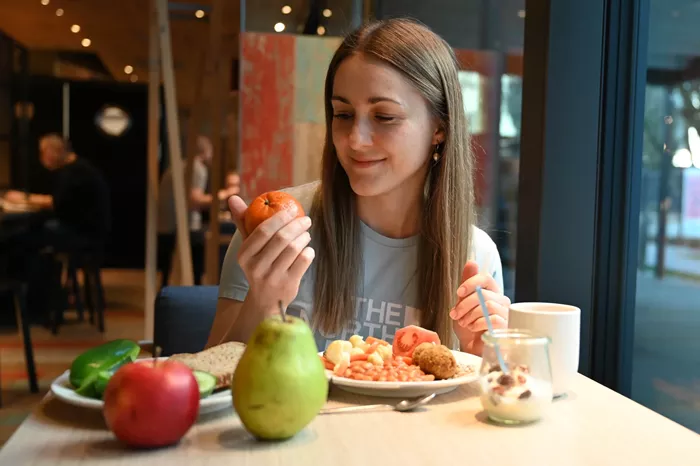A recent study reveals that teenage girls who follow plant-based diets, particularly those who avoid meat, are at an elevated risk of developing iron deficiency. The research, conducted on 475 female high school students from southern Sweden, highlights that iron deficiency affects 38% of participants, with a higher prevalence among those who restrict meat or follow vegan or vegetarian diets.
The study found a direct correlation between heavy menstrual periods and dietary choices in contributing to iron deficiency. Nearly 70% of vegan and vegetarian participants showed signs of low iron levels, underscoring the importance of proper nutritional knowledge for those opting for sustainable eating practices. With the growing trend of plant-based diets among young people, this condition could become increasingly common, experts warn.
The research was inspired by the personal experience of one of the study’s authors, whose teenage daughter struggled with fatigue and low mood. After months of uncertainty, blood tests revealed the cause: iron deficiency anemia. This prompted the investigation into whether the issue was more widespread among adolescents, leading to a collaboration between clinical and nutritional experts.
Participants in the study were asked to complete questionnaires on their eating habits, supplement use, and menstrual patterns. Blood samples were also collected to analyze key markers for iron status, such as hemoglobin and ferritin.
Iron, which is essential for oxygen transport in the blood, plays a vital role in brain function and energy metabolism. Deficiency in this crucial nutrient can lead to symptoms such as fatigue, pale skin, and shortness of breath. Even without full-blown anemia, low iron can result in poor concentration, reduced academic performance, and physical exhaustion. Addressing iron deficiency has been linked to improved energy levels and overall well-being.
Teenage girls are particularly vulnerable to iron deficiency for several reasons. Puberty’s rapid growth demands additional iron, and menstruation, especially in the early years following menarche, leads to iron loss. Additionally, many girls reduce their intake of red meat or animal products during adolescence, which further compounds the risk. Even among those who continue to consume animal products, iron intake often remains insufficient.
This issue is not confined to Sweden. A European study from 2006–2007 found that 26% of girls aged 12 to 17 had iron deficiency, and U.S. data suggests that around 17% of girls aged 12 to 21 experience low iron stores. While research methods vary, the trend is clear: adolescent girls worldwide are at risk of iron deficiency, often without realizing it.
Several misconceptions about iron deficiency persist, hindering proper treatment. One common myth is that eliminating animal products automatically results in a healthier diet. While a plant-based diet can be nutritious, it’s essential to replace iron-rich animal sources with plant-based alternatives and incorporate foods that enhance iron absorption, such as vitamin C-rich fruits and vegetables.
Another misconception is that iron deficiency is easy to spot. In reality, symptoms often develop gradually and are easily overlooked, with tiredness, poor concentration, and low mood becoming normalized over time. Lastly, many believe iron supplements are dangerous or unnecessary. However, for those diagnosed with deficiency, supplements are often essential and, when used correctly, safe.
To help prevent iron deficiency, experts offer three simple tips for a sustainable and iron-rich diet:
Incorporate iron-rich plant foods daily: Whole grains, legumes, and leafy greens like spinach and kale are excellent sources of iron. For those who eat small amounts of red meat, plant-based sources still account for over 80% of daily iron intake.
Enhance absorption: Iron from plant sources is bound by phytic acid, which can hinder absorption. Combine iron-rich meals with vitamin C or natural acids (like citrus or vinegar) to improve absorption.
Avoid iron blockers: Limit the consumption of tea or coffee with meals, as tannins can significantly reduce iron absorption.
With the right guidance, teenage girls can maintain a healthy, plant-based diet while ensuring they meet their iron needs and avoid the consequences of deficiency.
Related topics:
Emotional Eating and Body Dissatisfaction Drive Rising BMI, Study Finds
Hearing Issues Linked to Reading Struggles and Mental Health
Early-Life Ozone Exposure Linked to Higher Asthma Risk in Children


